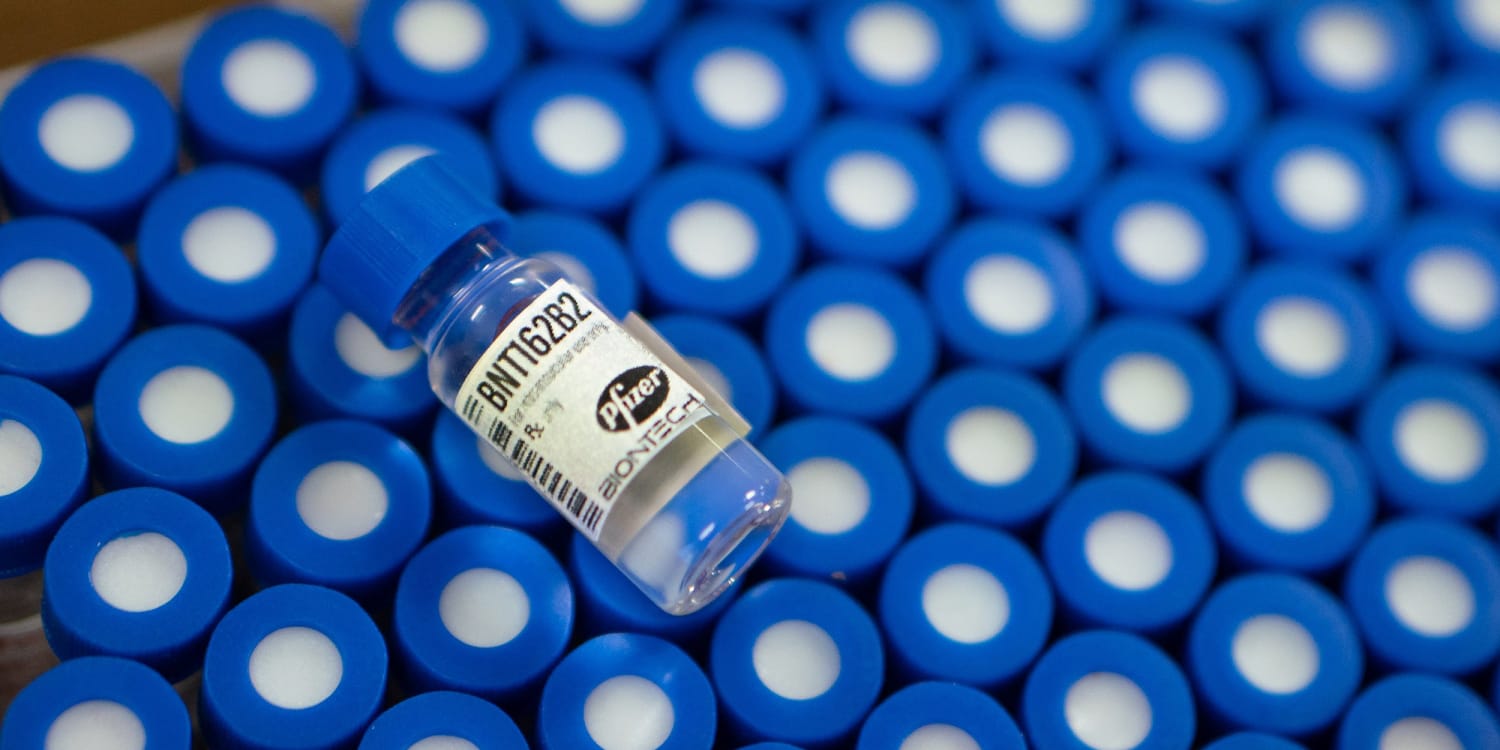Pfizer’s experimental Covid-19 vaccine is poised to become the first to be authorized for emergency use in the U.S.
A group of advisers to the Food and Drug Administration is expected to recommend that the agency authorize the Pfizer vaccine for use by the end of Thursday, after a daylong meeting to discuss its safety and effectiveness.
Full coverage of the coronavirus outbreak
The panel, called the Vaccines and Related Biological Products Advisory Committee, or VRBPAC, comprises scientists and public health officials independent of the FDA. Its task Thursday is to determine whether to advise the FDA to grant emergency use authorization of the Pfizer vaccine in the U.S.
The FDA will then decide in the coming days, based on VRBPAC’s vote, whether to issue the authorization.
All signs point to a vote in favor of the vaccine, which was developed by Pfizer and the German drugmaker BioNTech, after documents released Tuesday showed that the two-dose regimen is 95 percent effective.
What’s more, it appears to be equally effective across all age, racial and ethnic minority groups, as well as among people with underlying conditions, such as obesity, diabetes and high blood pressure.
Still, one voting member of the VRBPAC maintained that the group is committed to scrutinizing the vaccine’s safety and efficacy before any vote.
“I know there is a lot of speculation,” said the panelist, Dr. Ofer Levy, director of the Precision Vaccines Program at Boston Children’s Hospital. “But it ain’t over until it’s over.”
The FDA isn’t required to follow its panels’ recommendations, but it usually does.
Committee members are expected to discuss a variety of issues surrounding the Pfizer vaccine, including the potential for side effects, such as fatigue, fever, headaches and muscle and joint pain.
Four cases of Bell’s palsy, a condition that causes facial paralysis, were identified in study participants who received the vaccine and in none in the group who got a placebo. At least one of the patients has recovered. There is no evidence that the vaccine caused the problem, but the committee is likely to recommend long-term follow-up of the potential issue.
The group is also expected to analyze a handful of severe allergic reactions reported in the United Kingdom. Allergic reactions to vaccines or any other drug are always possible, but in general they are rare.
If the FDA grants emergency use authorization, distribution is expected to begin immediately, said Army Gen. Gustave Perna, who oversees logistics for Operation Warp Speed, the White House’s vaccine distribution project.
Download the NBC News app for full coverage of the coronavirus outbreak
Perna told reporters Wednesday that if the FDA gives the green light, the government plans to distribute 2.9 million doses within the first week.
An additional 2.9 million doses will be set aside for the same people to get the second shot 21 days after the first dose. Another half-million doses, Perna said, are in reserve in case of manufacturing problems.
The FDA panel is scheduled to meet again next week to discuss a second vaccine, made by Moderna.
Source: | This article originally belongs to Nbcnews.com










